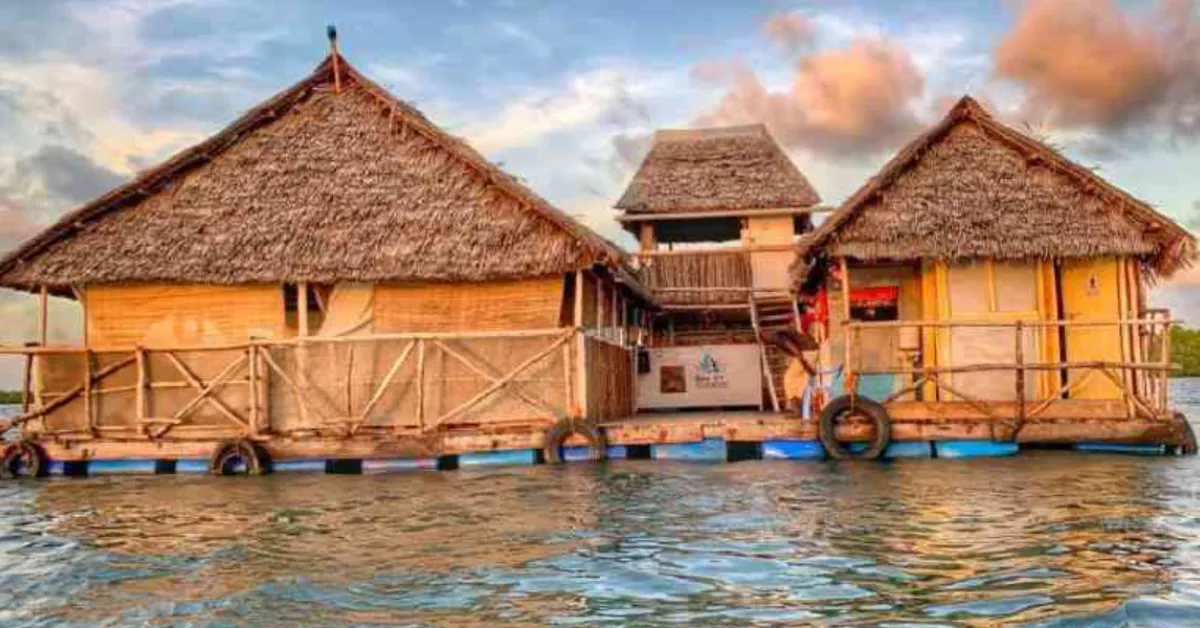Eat, Sip, Relax: How Lamu’s Ocean Eateries are Changing Coastal Tourism

A wave of floating restaurants and bars is redefining tourism in Lamu County, blending cultural preservation with innovative leisure.
These establishments, which have emerged over the last two decades, now characterise the region’s evolving identity as a destination that harmonises serenity, innovation, and tradition. Today, more than four of these unique venues operate in the archipelago's coastal waters, providing a dining experience that transcends conventional hospitality. They range from juice-only eateries that respect religious sensibilities to pubs where patrons can enjoy cocktails while immersing their feet in the ocean.
Al-Miftah Restaurant: Honouring Islamic Values
Among the most culturally significant is the Al-Miftah Floating Restaurant, established in 2023. Located approximately 100 metres offshore from King Fahd County Referral Hospital, it embodies Lamu's Islamic values and Swahili culinary traditions. Founded by Fat’hi Salim Masoud, the restaurant serves seafood and local dishes, while strictly prohibiting alcohol, miraa, and muguka. Masoud notes the importance of maintaining the community's culture and traditions at sea, emphasising Lamu's status as a UNESCO World Heritage site.
Al-Miftah caters to a demographic often overlooked by mainstream hospitality: individuals seeking leisure without compromising religious or cultural observance. A boat service operates from jetties in Lamu Town, Manda, Mokowe, Shella, and King Fahd, ensuring accessibility while reinforcing the experience of dining afloat.
The Lamu Floating Pub: A Cosmopolitan Alternative
In contrast, the Lamu Floating Pub, established in 2007, appeals to a more liberal clientele. Owned by Fridah Njeri Njogu, the pub, situated roughly one kilometre from Lamu Old Town and Shella, offers alcoholic beverages and a relaxed atmosphere to both domestic and international tourists. Njogu describes the pub as "paradise," where patrons can enjoy swinging their feet in the water while watching the fish or the sunset.
The contrast between Al-Miftah and the Lamu Floating Pub illustrates the pluralism that defines Lamu’s tourism landscape, a reflection of the county’s ability to accommodate diverse preferences while maintaining its unique coastal identity.
Community-Led Innovation in Lamu East
Further afield, in Lamu East sub-county, the Pate Tourist Banda, developed in 2019 by the Pate Resources and Tourism Initiative (PRATTI), exemplifies grassroots innovation. This community-led floating structure has attracted a steady stream of visitors. Haji Ramadhan, a PRATTI member, acknowledges the sector’s volatility and the need for creative responses.
"As the trend gains momentum, it’s completely reshaping the way we think about dining and leisure," he states. "If we, the investors, are to cope with or remain afloat in this slippery tourism and hospitality industry, we must innovate."
The growth of floating venues in Lamu represents a strategic adaptation to the challenges facing coastal tourism. These establishments offer a compelling alternative to traditional land-based restaurants by capitalising on the region’s natural beauty and maritime heritage.
Expansion Plans and Tourist Appeal
Plans are underway to expand this concept further. Ghalib Alwy, Patron of the Lamu Tourism Association (LTA), has indicated that new floating restaurants are being developed at Ras Kitau near Shella and the Kitangani area near Mokowe. A floating massage parlour is expected to launch within two months, adding another layer to Lamu’s oceanic leisure portfolio.
"Such unique floating ventures provide a novel setting distinguishing them from traditional land-based establishments," Alwy said. "They offer an escape from the hustle and bustle, particularly for urban dwellers, making them a preferred choice for special occasions."
Tourists express a strong preference for these venues. Willis Mbura, a tourist from Nakuru, appreciates the proximity to the water at the Floating Pub, saying, "Every time I visit Lamu, I like revelling at the Floating Pub. Being at the floating restaurant means I am right on top of the water, and it’s nice."
Italian tourist Ciarra Leonardo values the unobstructed views of the Indian Ocean. "This is the tenth time I am visiting Lamu. Whenever I land here, I’ve ensured once or twice I spend my quality time at the Floating Pub," she confirms.
Architectural and Logistical Challenges
Constructing a floating restaurant is a complex architectural and logistical undertaking. Twalib Sagaf, an architectural expert based in Lamu, notes that it involves more than placing a dining area on a boat.
"Compared to constructing a restaurant on land, a floating restaurant is costly," he explains. "The choice of materials is crucial; they must be durable, water-resistant, and capable of withstanding the humid marine environment."
This financial and technical barrier has deterred some potential investors, but for those who proceed, the rewards are substantial. Floating restaurants in Lamu have diversified the county’s tourism offerings and reinforced its reputation as a destination that harmonises tradition with innovation.














Add new comment